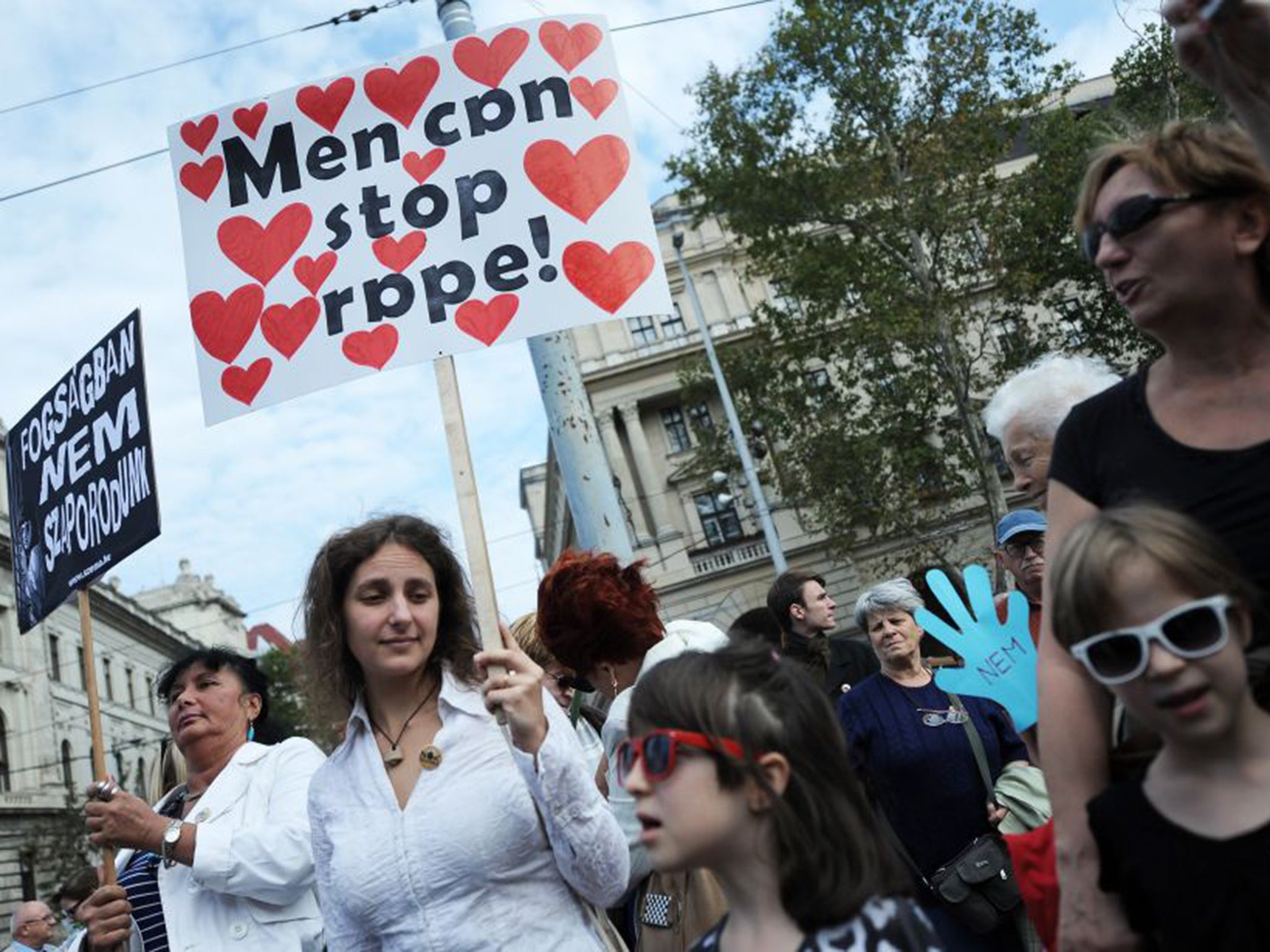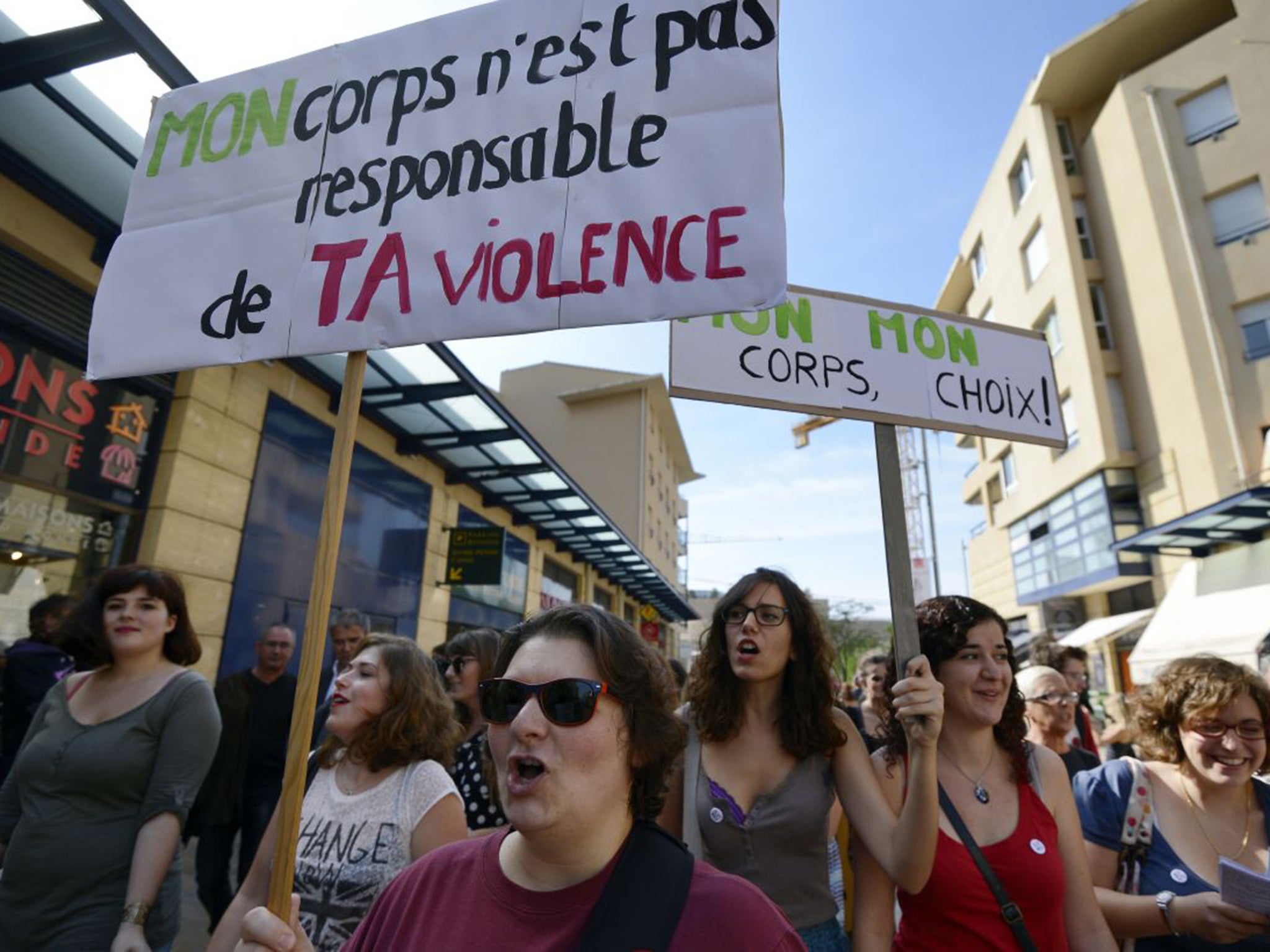Istanbul Convention: Britain drags its feet over women's rights
A pan-European convention protecting women and girls has yet to be ratified by the Government, years after it was signed

Your support helps us to tell the story
From reproductive rights to climate change to Big Tech, The Independent is on the ground when the story is developing. Whether it's investigating the financials of Elon Musk's pro-Trump PAC or producing our latest documentary, 'The A Word', which shines a light on the American women fighting for reproductive rights, we know how important it is to parse out the facts from the messaging.
At such a critical moment in US history, we need reporters on the ground. Your donation allows us to keep sending journalists to speak to both sides of the story.
The Independent is trusted by Americans across the entire political spectrum. And unlike many other quality news outlets, we choose not to lock Americans out of our reporting and analysis with paywalls. We believe quality journalism should be available to everyone, paid for by those who can afford it.
Your support makes all the difference.The Government has failed to ratify a pan-European convention on women’s and girls’ rights three years after signing up to it and 12 months since it came into force.
Albania, Andorra, Malta, Serbia and Turkey are among the 18 states that have already ratified the Istanbul Convention. But the UK is still assessing whether the country’s laws are compliant with the convention that seeks to protect women from sexual violence, a delay that has infuriated campaigners.
The UK Government has in the past blamed the delay on the requirement to make forced marriages illegal, but this happened last year. Officials at the Home Office, Foreign Office and Ministry of Justice are understood to be combing the British statute book to make sure that the UK has jurisdiction over other offences committed abroad against women by UK nationals.

There are suspicions that the convention would be difficult to implement because of spending cuts. For example, the convention would give women the formal right to counselling after suffering domestic violence or abuse.
Hilary Fisher, director of policy at Women’s Aid, said: “This is a really powerful convention and it’s disappointing that the UK hasn’t ratified it. It’s really difficult to understand.”
Campaigners are particularly annoyed because Britain has been at the forefront of campaigns to improve women’s rights, hosting three international summits, including one with Unicef last year on eradicating female genital mutilation.
Liz McKean, a director at Amnesty International, added: “The UK puts forward that it is a champion of women’s and girls’ rights, yet we’re not one of the first tranche to ratify a convention like this. The fact we’ve not ratified this sends mixed messages. It’s a big contradiction and looks odd. These issues should have been resolved by now. We’ve been told before that they would have been.”
Other states that have ratified the convention include Austria, France, Germany, Portugal and Spain. A group of inspectors, known as Grevio, will begin work later this year ensuring that countries are abiding by the convention.
Women’s rights lawyer Lisa Gormley said it “beggars belief that this obvious step forward” had not been ratified. “This would put a real engine of energy to doing this [establishing women’s rights] in a comprehensive, co-ordinated way,” she added. “The Istanbul Convention requires a really comprehensive look at violence against women as a whole. Violence against women costs millions of millions of pounds in lost wages and burden on the NHS.”
A government spokeswoman said: “The previous government signed the Istanbul Convention to show the strong commitment it placed on tackling violence against women and girls – and this government remains committed to ratifying it.
“We have already cemented our standing as a world leader in this important area – hosting major international summits to tackle female genital mutilation, sexual violence and forced marriage. We already comply with the vast majority of the convention’s articles.”
Join our commenting forum
Join thought-provoking conversations, follow other Independent readers and see their replies
Comments